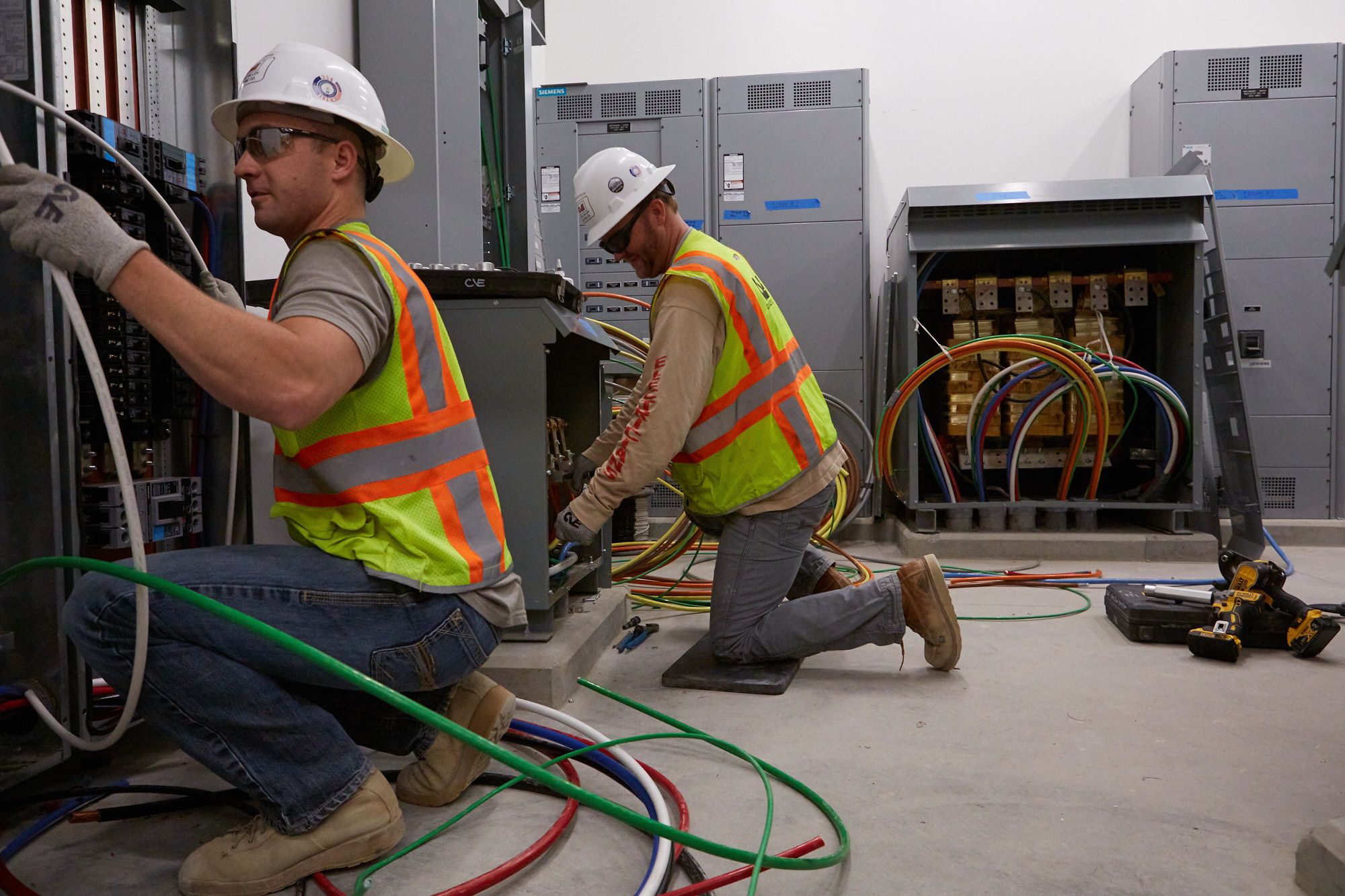If you’ve ever wondered what it takes to make the electrical systems in commercial establishments function smoothly, then look no further. This article will provide you with a clear understanding of the responsibilities that come with being a commercial electrician. From managing complex wiring systems to troubleshooting electrical issues, a commercial electrician plays a crucial role in ensuring the safety and efficiency of a business. Whether it’s installing new lighting fixtures or conducting routine maintenance, their expertise is essential in keeping the power flowing and the lights on. So, let’s explore the world of a commercial electrician and uncover the vital tasks they perform on a daily basis.
Understanding the Responsibilities of a Commercial Electrician
Roles of a Commercial Electrician
As a commercial electrician, you play a vital role in ensuring the smooth operation of electrical systems in commercial buildings. Your main responsibility is to install, maintain, and repair electrical systems, ensuring they meet the needs of businesses and adhere to safety regulations. You are the expert that businesses rely on to keep their electrical systems running efficiently and effectively.
Qualifications and Training
To become a commercial electrician, you need to have the right qualifications and undergo specific training. Typically, this includes completing an apprenticeship program or attending a trade school to learn the necessary skills and knowledge. It is crucial to have a solid foundation in electrical theory, codes, and regulations, as well as hands-on experience in wiring, circuitry, and troubleshooting. Being a licensed electrician is often a requirement to work in the commercial field.
Safety Precautions
Safety is of utmost importance when working as a commercial electrician. Understanding and following safety protocols is a significant part of your job. You must adhere to electrical codes and regulations to ensure the safety of yourself, your colleagues, and the occupants of the commercial building. This may involve wearing protective gear, following proper lockout/tagout procedures, and using specialized tools and equipment designed to minimize risks.
Electrical Systems Installation
The installation of electrical systems in commercial buildings is another vital responsibility of a commercial electrician. This involves planning and executing the wiring and circuitry needed to power various components, such as lighting fixtures, outlets, HVAC systems, and machinery. You must be able to interpret electrical blueprints and follow design specifications to ensure a proper and safe installation.
Maintenance and Repair
Commercial electricians are also responsible for the regular maintenance and repair of electrical systems. This includes conducting inspections, identifying potential issues, and performing necessary repairs or replacements. Regular maintenance helps prevent electrical problems and ensures the optimal functioning of the systems. In cases where a repair is required, you must have the knowledge and skills to diagnose the problem accurately and fix it promptly.
System Upgrades and Modifications
As technologies advance and businesses grow, commercial electrical systems may require upgrades or modifications. As a commercial electrician, it is your responsibility to assess the existing systems, determine the necessary upgrades or modifications, and execute them accordingly. This may involve installing additional outlets, upgrading lighting systems to more energy-efficient options, or integrating new equipment into the existing electrical infrastructure.
Electrical Code Compliance
Electrical codes and regulations ensure the safety and proper functioning of electrical systems in commercial buildings. As a commercial electrician, you must be well-versed in these codes and regulations to ensure compliance. This includes understanding the specific requirements for different types of installations, such as wiring methods, grounding systems, and circuit protection. Adhering to electrical codes helps prevent disasters, ensure occupant safety, and avoid legal issues.
Testing and Troubleshooting
When electrical systems malfunction or encounter issues, commercial electricians are responsible for testing and troubleshooting. This involves using specialized tools and equipment to identify the source of the problem and implementing the necessary repairs or adjustments. You must have a strong understanding of electrical systems and components to accurately diagnose and resolve issues, ensuring the smooth operation of the commercial building.
Managing and Organizing Projects
In addition to the technical aspects of the job, commercial electricians often take on project management and organizing responsibilities. This may involve coordinating with other tradespeople, communicating with clients or project managers, and managing timelines and budgets. Effective project management requires strong organizational skills, clear communication, and the ability to work collaboratively with various stakeholders to deliver successful outcomes.
Customer Service and Communication
As a commercial electrician, you frequently interact with clients and building occupants. Excellent customer service and communication skills are vital to ensure client satisfaction and project success. You need to be able to listen to and address client concerns, explain technical details in non-technical terms, and provide updates on the progress of the work. Building strong relationships with clients and demonstrating professionalism are essential aspects of your role.
In conclusion, the role of a commercial electrician encompasses various responsibilities to ensure the proper installation, maintenance, and repair of electrical systems in commercial buildings. With the right qualifications, training, and commitment to safety, a commercial electrician plays a crucial role in keeping businesses running smoothly and safely. By understanding and fulfilling these responsibilities, you contribute to the efficient functioning of commercial buildings and ensure the satisfaction of clients and building occupants.



